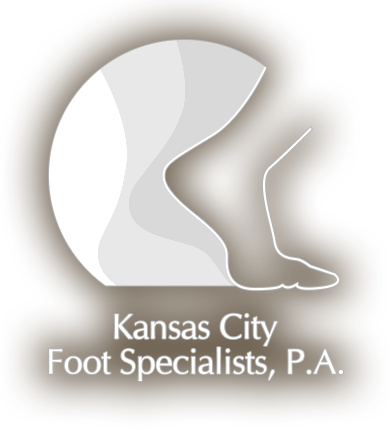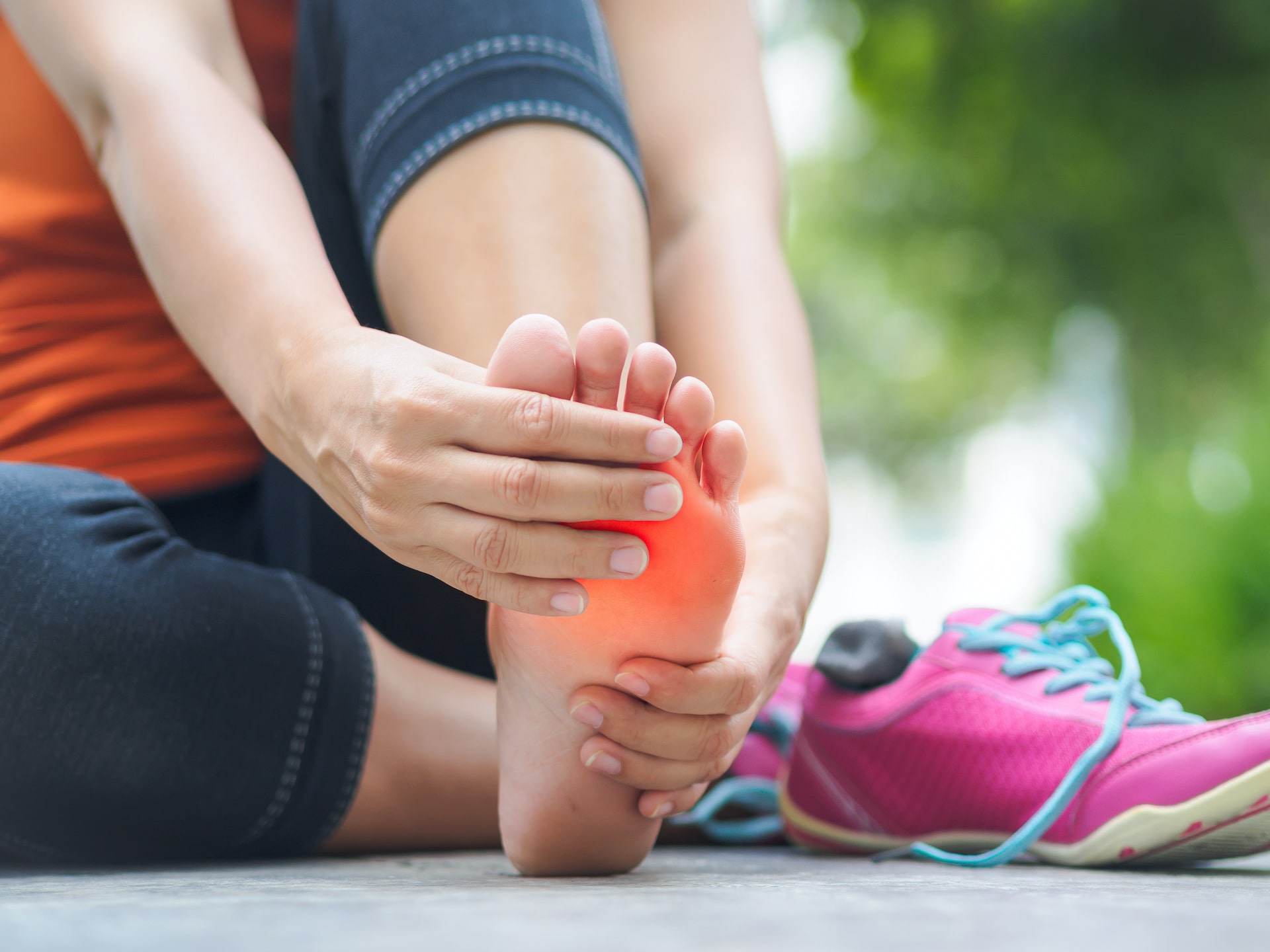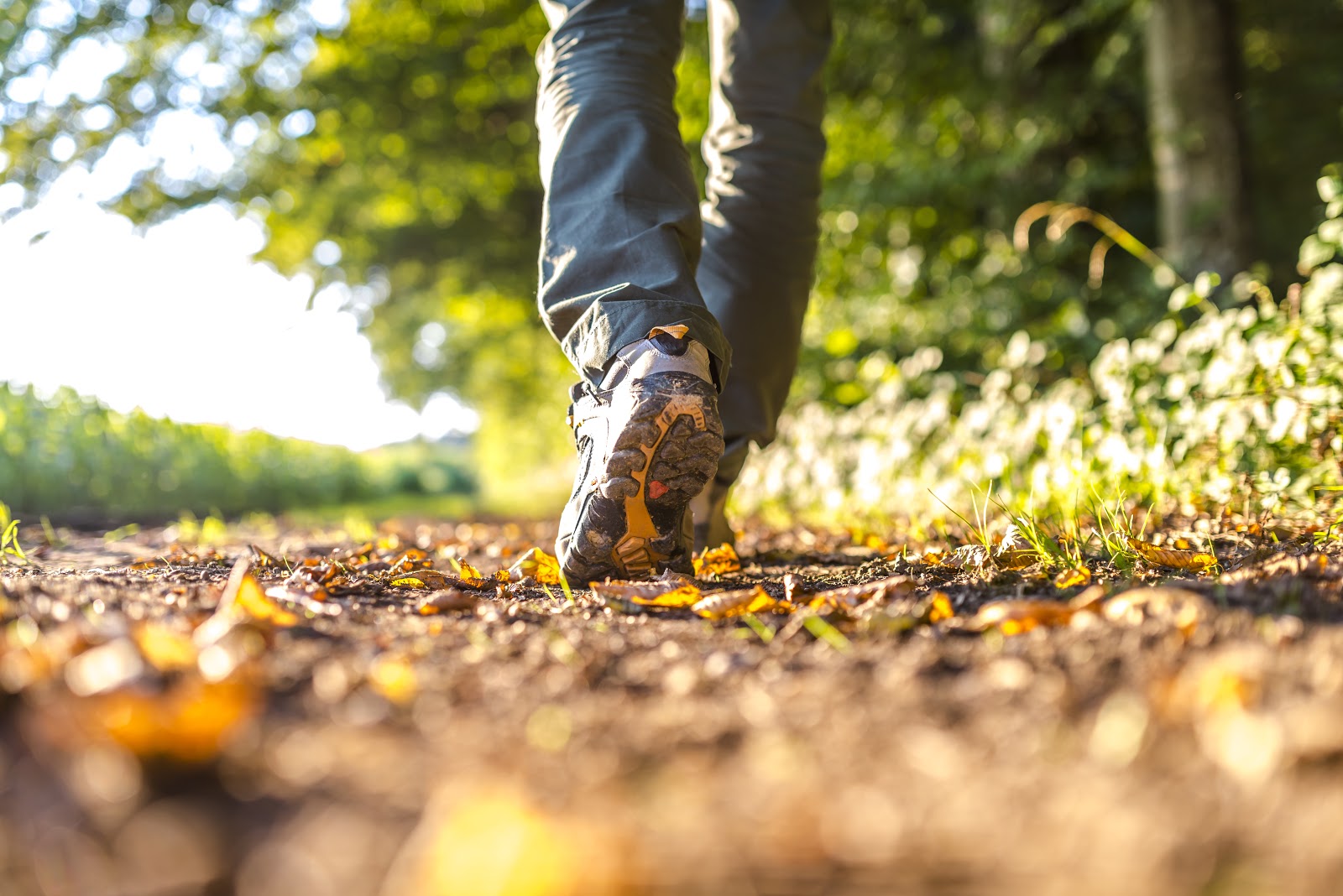Bunions
Bunions are a type of bump at the joint where the big toe and foot meet. They become painful if left untreated, and the joint may become stiff and sore. Over time, it may become difficult to move the toe, and wearing shoes may become difficult. They may also occur along the little toe.
What causes them?
Corns and calluses
Corns and calluses form when the toe rubs excessively against the inside of the shoe or from excess pressure on the foot. Corns are particularly common in women who wear high heels and in those with certain foot conditions such as hammertoes.
Bunions
Bunions form when the bone or foot tissue move out of place, causing the toe to bend towards the others. Bunions form due to abnormal motion and pressure over the first joint of the big toe. Foot injuries, neuromuscular disorders, and congenital deformities may also lead to bunions. Those with flat feet or low arches, as well as those in jobs that put extra stress on the feet, are prone to bunions. An additional factor is wearing shoes that are too tight.
How are they treated?
Corns and calluses
If corns or calluses are mild, they may not require treatment beyond changing your shoes or adding padding over the affected areas. If they get worse, your podiatrist will help you to understand and correct the causes. If they become too large, however, your podiatrist may reduce or remove them by shaving down the dead, thickened skin. Corns and calluses that are excessively painful may require cortisone injections, and in extreme cases, possible surgery.
Bunions
The first step in treating bunions is to change your shoes. Look for shoes with a wide, deep toe box, and to avoid shoes with heels higher than two inches. Your podiatrist may also recommend bunion pads or ice packs. If changing your shoes or using padding don’t provide relief, your doctor may offer pain medication. Shoe inserts, made by your podiatrist, may also be an option. Should conservative treatments not offer relief, your podiatrist may recommend surgery.
Prevention
Corns and calluses
To prevent corns and calluses, wear properly fitting shoes and use padded inserts to reduce friction and pressure. If you have deformities of the feet or toes, your podiatrist will help you choose the best shoes for your feet.
Bunions
To prevent bunions, wear shoes with a wider toe box, or more space at the toe end of the shoe. If you have flat feet or low arches, your podiatrist may suggest custom orthotics to insert in your shoes for support.
For concerns about corns, calluses, bunions, or other foot conditions, contact Kansas City Foot Specialists at 913-338-4440.



